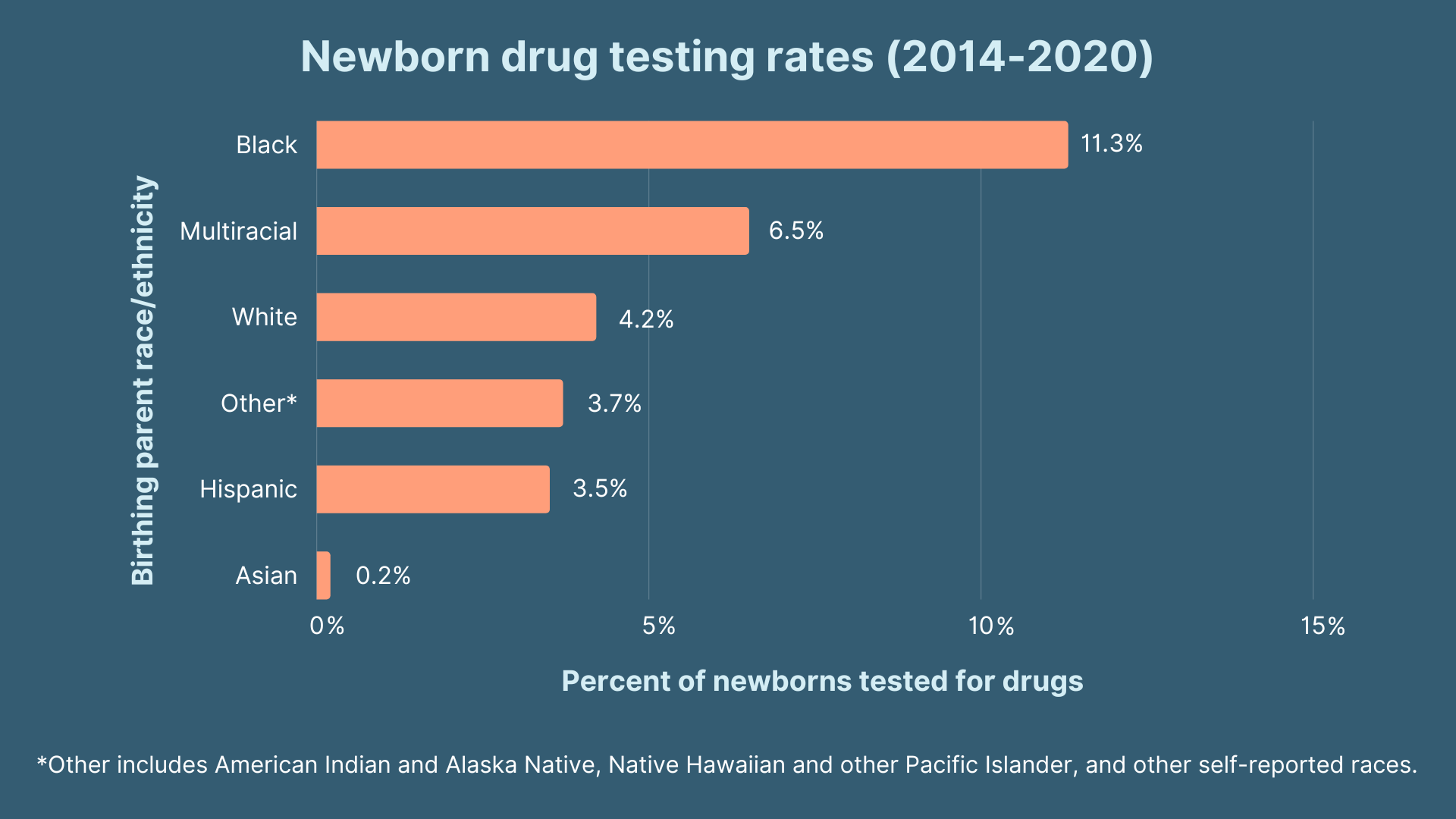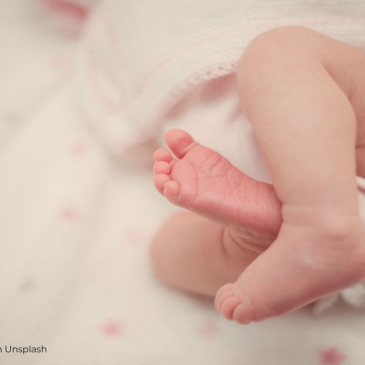Most U.S. states require that their clinicians report any suspected prenatal drug use. Despite the fact that Black and White adults use drugs at similar rates, clinicians tend to report Black parents for prenatal substance use at higher rates than they do White parents. Although these reports can help parents get connected to substance use treatment programs and social services, they can also lead to termination of parental rights. This week, STASH reviews a study by Sebastian Schoneich and colleagues that examined racial/ethnic differences in newborn drug testing rates and results.
What were the research questions?
Do newborn drug testing rates and results differ by birthing parent race/ethnicity? Did the testing rates and results change after the state legalized recreational cannabis in 2018?
What did the researchers do?
The researchers examined electronic health record data for 26,366 live births that occurred during 2014-2020 at an academic medical center in the Midwestern United States. Their analysis included newborn drug test orders, newborn drug test results, birthing parent race/ethnicity, and a comparison of data pre- and post-legalization of recreational cannabis.
What did they find?
Black newborns were most likely to be tested for drugs (see Figure). In a comparison of White and Black newborn drug test results, researchers found that White newborns were more likely to test positive for opioids and Black newborns were more likely to test positive for tetrahydrocannabinol (THC; the major psychoactive component in cannabis). These testing rates and racial differences remained similar after state legalization of recreational cannabis. However, post-legalization, test results overall were more likely to be positive for THC.

Figure. Newborn drug testing rates by birthing parent race/ethnicity. Click image to enlarge.
Why do these findings matter?
The overtesting of Black newborns contributes to increased contact with child protective services, which can lead to harmful consequences for the birthing parent, such as child removal and parental arrest, prosecution, and punishment. Implicit bias may play a role in this racial disparity, so it is important for clinicians to recognize their own bias and provide respectful care to birthing parents of all races and ethnicities.
Every study has limitations. What are the limitations in this study?
The sample was limited to live births at a single academic medical center in the Midwestern United States, so the results may not be generalizable to newborns who were born in a different setting (e.g., community hospital, birthing center), region of the United States, or country.
For more information:
Community Voices in Recovery is a free, online course for allied health professionals who want to improve racial and health equity in addiction care. If you are worried that you or someone you know is experiencing addiction, the SAMHSA National Helpline is a free treatment and information service available 24/7. For more details about addiction, visit our Addiction Resources page.
— Caitlyn Matykiewicz, MPH
What do you think? Please use the comment link below to provide feedback on this article.




